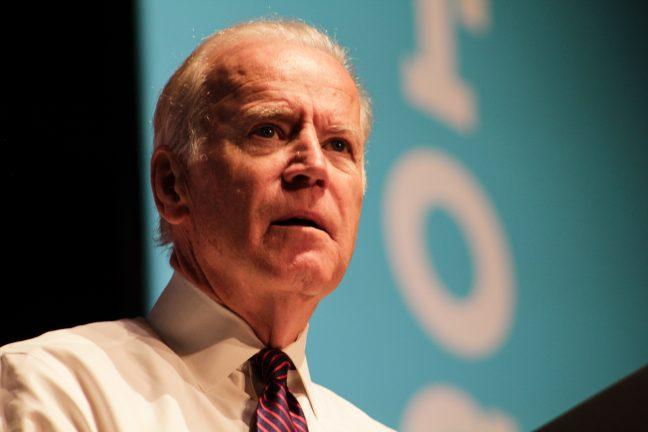When political science professor Jon Pevehouse told his students he was leaving the University of Wisconsin last spring, one student said his departure was a “huge loss” to the school.
Pevehouse was one of several political science professors who left the university after receiving better offers from other institutions.
The issue of faculty retention extends well beyond the political science department, however, and has become a campuswide issue in departments including history and engineering.
With funding from the state often in question from year to year, UW is struggling to offer professors competitive salaries, continual raises and benefits in proportion to their colleagues at other competing research institutions.
Currently, UW is on a short list of Big Ten schools that does not offer domestic partner benefits, a problem UW System spokesperson David Giroux said causes faculty to leave the university or deters potential candidates for pursuing Wisconsin as a viable option.
“We [have] known anecdotally professors not even giving our university a look because compensations are below the median,” Giroux said. “And the total package including the benefits are not there — especially domestic partner benefits.”
Provost Patrick Farrell’s office conducted a summary of all 2,220 faculty members in the 2005-2006 academic year and found 116 outside offers were reported — twice as many as were reported five years ago.
In addition, the survey said excluding the preemptive offers where there were no negotiations with another university, the success rate in retaining faculty was approximately 57 percent, compared to the previous six-year average of 75 percent.
In addition, according to the survey, the average salary professors received from an outside offer was 30 percent more than their current UW salary, and for those professors UW could not retain, the salary was 40 percent more than at UW.
How academic departments cope
Political science department chair John Coleman said because of the unusually high number of departures last year, the department is currently five short of the number of faculty they had at this time in 2006.
“There will always be some turnover as new faculty are hired and others retire or take positions elsewhere,” Coleman said. “Within reason, that can be a healthy thing for any organization. When the number of departures gets larger, it is more difficult to manage and can affect morale, so that’s a big concern.”
Currently, Coleman said his department is involved in two faculty searches and three multi-department searches, and has an offer out to one potential faculty member.
History department chair David McDonald said the pressure of retaining faculty arises from two separate sources: natural causes — when professors retire — and other professors in the prime of their career leaving UW for positions at other universities.
With limited resources, McDonald said UW faculty receive lower salary compensations, and are also required to pay for trips to conferences in their academic discipline.
The university cannot offer tuition remission for children of faculty, unlike some private institutions such as Vanderbilt, who McDonald said will even pay up to a certain percentage of faculty’s students’ tuition if they want to go somewhere else.”We’re the Yankees,” McDonald said. “We are still really good, and it takes a long time to destroy the reputation. I have spent 20 years of my life working to make this a great institution and to watch resource issues raise a threat to that… We do have to find an answer.”
McDonald said he recognizes it is a “risky run” when they hire the best, but added the increased salary gap between private institutions is where the “sucker gap” kicks in.
Professors like coming to Madison and like the work done here, McDonald said, but when they are asked to pay for things like travel, he said they become attracted to institutions that may not be as strong academically.
Additionally, McDonald said Wisconsin is a very “recognizable brand” and once UW hires a faculty member, they become identified as a bona fide scholar and automatically achieve a luster on the next market.
McDonald said when faculty leave the department for another university — including three in the last year — it is disruptive for the administration and does not provide for a great working environment.
Still, McDonald said many professors want to come here.
McDonald said there are still many more applicants than there are jobs, and faculty want to come to Madison because of the excellent libraries, good students and a reputation for granting tenure more than Ivy League schools.
Across campus, Paul Peercy, dean of the School of Engineering, said he is very concerned about losing faculty, adding about two or three times per month, he hears of a faculty member receiving an offer from another university.
In the last year alone, Peercy said more than 25 faculty members have received offers from domestic and international institutions, and seven have left.
For example, Peercy said one professor went to the University of Pennsylvania because of domestic partner benefits, another professor left for the Massachusetts Institute of Technology and another went to the University of Warwick, in the United Kingdom.
The problem, Peercy said, is trying to compete with other schools, because UW has a low resident tuition and, unlike at the University of Iowa, Peercy said not having differential tuition is a detriment to the Engineering School to recruit and retain faculty.
“For the economy of the state, we need to educate more engineers at the College of Engineering,” Peercy said. “When you go around Wisconsin, the No. 1 need is more engineers.”
The effect on UW students
Mark Supanich, co-president of the Teaching Assistant Association and a fourth-year graduate student in the medical physics department, said the relationship between a graduate student and faculty mentor is more complex and nuanced — on some level, he said, they are colleagues.
Supanich said when faculty members leave, it significantly impacts a graduate student.
First-year students, Supanich said, can transfer to a new advisor, but others who have invested a significant amount of time in their research, want to move along with the faculty member to their new position and that transfer can add major time to their degree completion.
“Graduate students come to graduate school for skilled and well-renowned professors,” Supanich said. “New professors come to the university because the quality of graduate students is high. Any loss in faculty and graduate students affects the departments and undergraduates level of instruction they receive.”
McDonald added the loss of professors affects undergraduates in political science and history because students build relationships with professors when they take introductory courses with specific faculty members and count on taking a seminar with them their senior year.
Why do professors want to come to UW?
Associate political science professor Yoshiko Herrera, who joined the faculty this year with her husband, left Harvard University primarily because she received spousal hiring.
Herrera said after being up for tenure at Harvard and not receiving it, she and her husband, who was teaching at the University of Pennsylvania, were on the market together. She said she chose Madison because it is a top research institution.
In addition, Herrera said she likes the challenge of a large state university setting, and likes that UW is a democratic and transparent institution.
The problem with faculty retention, Herrera said, is not the new faculty who come to the university, adding her and her husband’s salaries were both matched from their previous institutions and were given a small raise coming in.
However, Herrera said, according to university policy, if professors want to earn a salary raise, they have to go out on the market and then UW will match the offer.
“It is fundamentally a bad policy, because the best faculty are going to get an offer and if they get a lot of money, they leave,” Herrera said.
Also, Herrera said when a new person gets hired, the difference between the new faculty member’s and the old member’s salary could be as great as 50 percent, making professors question their value.
A more efficient method, Herrera suggests, would be to look at the publications of professors, teaching evaluations and department chairs’ recommendations to determine professors’ assets to the institution.
Is this a problem at other universities?
Besides UW, faculty retention has become an issue at other institutions as well.
Jeanne Sept, vice provost for academic affairs and dean of the faculty at Indiana University said the average resignation rate for tenure-eligible faculty is 3 percent per year.
At IU, Sept said the high caliber of the faculty means they are always being solicited by other institutions, including public and private universities, government organizations, corporations and other types of businesses.
Sept said faculty make decisions to leave or stay based not only on salary issues but also based on characteristics such as the quality of their colleagues, research and infrastructure, creative teaching opportunities and support.
University of Michigan spokesperson Kelly Cunningham said retaining top faculty has been a challenge at Michigan almost since its founding, because other schools look at them as an excellent source of scholars.
Cunningham said President Sue Coleman compared faculty recruitment and retention to “an arms race” and added, “It is a competition for talent that makes athletic recruiting look like a playground issue.”
Currently, Cunningham said the provost’s office has established a special recruitment and retention fund to help retain top faculty.
Cunningham also said Coleman has established the President’s Donor Challenge — a fund that provides matching dollars for donor gifts creating endowed professorships. As of now, the challenge has raised $30 million to create 20 new fully -endowed professorships, Cunningham said.
Madeline Wake, provost at Marquette University, said both public and private institutions are concerned with paying competitive salaries.
Wake said pay for professors at Marquette is on par with UW.
Where are we now?
Despite the problems in the past with faculty retention, Giroux said the issue of retention has strong bipartisan support.
With $10 million marked in the budget for faculty retention throughout the UW System, Giroux hopes it will send a positive message to this community.
“Ten million dollars will show the bipartisan support for the budget,” Giroux said. “And it will send a positive message to the employees that they are valued by our leaders.”















